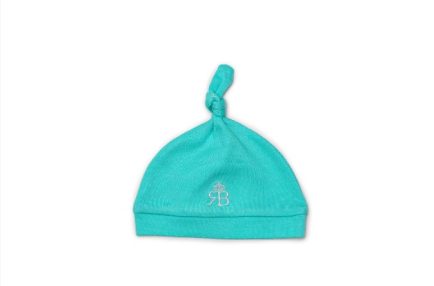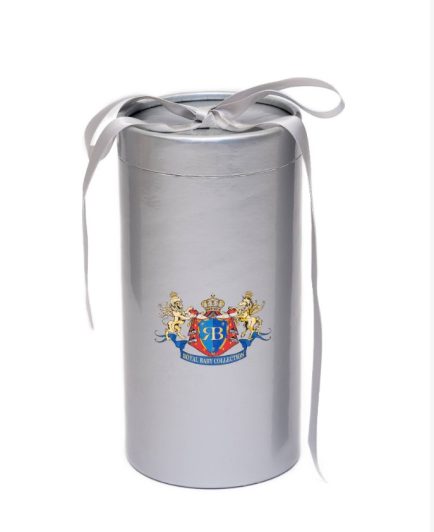For the first couple of days after the birth, your baby will pass meconium. Meconium is greeny-black in colour, and has a sticky, tar-like texture. It is made up of mucus, amniotic fluid, and everything your baby has ingested while she was in your womb (uterus). Meconium may be difficult to wipe off your baby’s tiny bottom, but its appearance is a good sign that her bowels are working normally.
Your colostrum, or first milk, acts as a laxative, helping to push meconium out of your baby’s system. Once your milk comes in, after about three days, your baby’s poos will gradually change. They will be:
At least the size of a £2 coin.
Lighter in colour, changing from a greenish-brown to bright or mustard yellow. This yellow poo may smell slightly swee Loose in texture. The poos may seem grainy at times, curdled at others. In the early weeks, your baby may poo during or after every feed. On average, she will do four poos a day in the first week. This will slowly settle down and her bowels will work out their own routine. You may then find that she poos at a similar time each day. After the first few weeks, some breastfed babies will only poo once every few days or once a week. This is not a problem as long as your baby’s poos are soft and are passed easily.
Your baby’s routine may change:
- when you introduce solids
- if she is feeling unwell
- when she starts to take fewer feeds
If you are formula-feeding your baby, her poos may be different from a breastfed baby’s. You may notice they are: Bulkier in texture than a breastfed baby’s (a bit like the texture of toothpaste). This is because formula milk can’t be digested as fully as breastmilk Pale yellow or yellowish-brown in colour Strong-smelling, more like an adult’s. Formula-fed babies are more prone to constipation than breastfed babies. Talk to your health visitor if you feel your baby has a problem.
Yes, they will. You may notice that your baby’s poos become darker and more paste-like. They will also be smellier! While you’re making the change from breastmilk to formula, try to do it slowly, ideally over a period of several weeks. This will give your baby’s digestive system time to adapt and help to prevent her becoming constipated. It will also reduce the risk of painful, swollen breasts and mastitis for you. Once your baby has adapted to the bottle, she may settle down into a completely different pooing routine!
Starting your baby on solids will have a dramatic effect on her poos. You’ll find that her poos are affected by the foods she eats. If you feed her pureed carrot, the contents of her next nappy will be bright orange. You may find fibre-rich foods, such as raisins or baked beans, pass straight through your baby and end up in her nappy. This will change when she gets older and is able to digest fibre more efficiently. As she moves on to a wide variety of foods, your baby’s poos will become thicker, darker, and a lot more smelly.
Diarrhoea
- Your baby may have diarrhoea if:
- her poo is very runny
- she is pooing more often, or passing larger amounts than normal
- the poo is explosive or spurts out of her bottom
If you are breastfeeding your baby, she is less likely to suffer from diarrhoea. This is because your milk helps to prevent the growth of the bacteria that cause it. Formula-fed babies are more prone to infection, which is why it’s so important to sterilise equipment and always wash your hands thoroughly.
- If your baby has diarrhoea, the cause could be:
- an infection, such as gastroenteritis
- too much fruit or juice
- a reaction to medication
- a sensitivity or allergy to a food
If you’re formula-feeding, your baby could be reacting badly to the brand of formula you’re using. But talk to your health visitor or GP before you switch brands, in case there is another cause. If your baby is teething, her poo may be looser than normal but it should not cause diarrhoea. If your baby has diarrhoea, don’t assume that her teething is the cause. It’s more likely to be an infection. In an older baby, diarrhoea can also be a sign of severe constipation. Fresh poo may be leaking out past a blockage of hard poo. Diarrhoea should clear up without treatment within 24 hours. If it doesn’t, get it checked out as your baby is at risk of dehydration. If your baby has had six episodes of diarrhoea in the past 24 hours, see your GP urgently.
Constipation
Many babies turn bright red and push hard when they do a poo. This is normal.
Constipation, on the other hand, is when:
- Your baby seems to have real difficulty doing a poo.
- Her poos are small and dry, like rabbit droppings. Alternatively, they may be large and hard.
- Your baby seems irritable, and she strains and cries when she does a poo.
- Her tummy feels hard to the touch.
Her poos have streaks of blood in them. This can be caused by tiny cracks in the skin, called anal fissures, caused by passing hard poos. Breastfed babies don’t tend to suffer as much constipation as formula-fed babies. Breastmilk contains all the right nutrients to keep their poos soft. Mixing up formula milk with too much powder can lead to constipation. Always follow the instructions when making up a bottle. Make sure you put water up to the recommended level first before adding the powder.
Constipation can also be caused by:
- fever
- dehydration
- changes in how much your baby drinks
- a change in diet
- certain medications
Sometimes, older babies become constipated because they are trying to avoid pain. For example, they may have a tear in the skin around the opening of their bottom (anal fissure). This can become a vicious cycle. Your baby holds on and gets more constipated, and then the pain is even worse when she does eventually go. Always take your baby to your health visitor or GP as soon as possible if she’s constipated, particularly if you notice blood in her poos. They will be able to check out all possible causes. You’ll probably be advised to increase your baby’s fluid intake, as well as the amount of fibre in her diet, if she is on solids. Giving her pureed prunes or apricots can be a good way to do this.
Green poo
If you’re breastfeeding, the occasional green poo is nothing to worry about. But if your baby is consistently doing explosive green poos, it may be because he’s feeding too fast. When a fast flow of milk hits his empty tummy, it can create air bubbles, leading to poor digestion. Try laid-back breastfeeding. This is a relaxing, comfortable position for your baby, and it also helps to stem the flow of your milk if you have a fast, powerful let-down. If you are feeding your baby formula milk, the brand you are using could be turning your baby’s poo dark green. It may be worth switching to a different formula to see if that has any effect.
If the symptoms last longer than 24 hours, visit your health visitor or GP. The cause may be:
- a food sensitivity
- side-effects of medication
- your baby’s feeding routine
- a stomach bug
Very pale poo
Very pale poo can be a sign of jaundice, which is common in newborns. Jaundice causes your newborn’s skin and the whites of her eyes to look yellow, and usually clears up within a couple of weeks of birth. Tell your midwife or doctor if your baby has jaundice, even if it looks like it’s going away. Also tell your midwife or doctor if your baby is passing very pale, chalky white, poos. This can be a sign of liver problems, especially where jaundice lasts beyond two weeks. Take a look at our baby poo photo gallery to see what’s normal and what’s not, or watch our nappy-changing video to see how often your baby needs changing.
For the first couple of days after the birth, your baby will pass meconium. Meconium is greeny-black in colour, and has a sticky, tar-like texture. It is made up of mucus, amniotic fluid, and everything your baby has ingested while she was in your womb (uterus). Meconium may be difficult to wipe off your baby’s tiny bottom, but its appearance is a good sign that her bowels are working normally.
Your colostrum, or first milk, acts as a laxative, helping to push meconium out of your baby’s system. Once your milk comes in, after about three days, your baby’s poos will gradually change. They will be:
At least the size of a £2 coin.
Lighter in colour, changing from a greenish-brown to bright or mustard yellow. This yellow poo may smell slightly swee Loose in texture. The poos may seem grainy at times, curdled at others. In the early weeks, your baby may poo during or after every feed. On average, she will do four poos a day in the first week. This will slowly settle down and her bowels will work out their own routine. You may then find that she poos at a similar time each day. After the first few weeks, some breastfed babies will only poo once every few days or once a week. This is not a problem as long as your baby’s poos are soft and are passed easily.
Your baby’s routine may change:
- when you introduce solids
- if she is feeling unwell
- when she starts to take fewer feeds
If you are formula-feeding your baby, her poos may be different from a breastfed baby’s. You may notice they are: Bulkier in texture than a breastfed baby’s (a bit like the texture of toothpaste). This is because formula milk can’t be digested as fully as breastmilk Pale yellow or yellowish-brown in colour Strong-smelling, more like an adult’s. Formula-fed babies are more prone to constipation than breastfed babies. Talk to your health visitor if you feel your baby has a problem.
Yes, they will. You may notice that your baby’s poos become darker and more paste-like. They will also be smellier! While you’re making the change from breastmilk to formula, try to do it slowly, ideally over a period of several weeks. This will give your baby’s digestive system time to adapt and help to prevent her becoming constipated. It will also reduce the risk of painful, swollen breasts and mastitis for you. Once your baby has adapted to the bottle, she may settle down into a completely different pooing routine!
Starting your baby on solids will have a dramatic effect on her poos. You’ll find that her poos are affected by the foods she eats. If you feed her pureed carrot, the contents of her next nappy will be bright orange. You may find fibre-rich foods, such as raisins or baked beans, pass straight through your baby and end up in her nappy. This will change when she gets older and is able to digest fibre more efficiently. As she moves on to a wide variety of foods, your baby’s poos will become thicker, darker, and a lot more smelly.
Diarrhoea
- Your baby may have diarrhoea if:
- her poo is very runny
- she is pooing more often, or passing larger amounts than normal
- the poo is explosive or spurts out of her bottom
If you are breastfeeding your baby, she is less likely to suffer from diarrhoea. This is because your milk helps to prevent the growth of the bacteria that cause it. Formula-fed babies are more prone to infection, which is why it’s so important to sterilise equipment and always wash your hands thoroughly.
- If your baby has diarrhoea, the cause could be:
- an infection, such as gastroenteritis
- too much fruit or juice
- a reaction to medication
- a sensitivity or allergy to a food
If you’re formula-feeding, your baby could be reacting badly to the brand of formula you’re using. But talk to your health visitor or GP before you switch brands, in case there is another cause. If your baby is teething, her poo may be looser than normal but it should not cause diarrhoea. If your baby has diarrhoea, don’t assume that her teething is the cause. It’s more likely to be an infection. In an older baby, diarrhoea can also be a sign of severe constipation. Fresh poo may be leaking out past a blockage of hard poo. Diarrhoea should clear up without treatment within 24 hours. If it doesn’t, get it checked out as your baby is at risk of dehydration. If your baby has had six episodes of diarrhoea in the past 24 hours, see your GP urgently.
Constipation
Many babies turn bright red and push hard when they do a poo. This is normal.
Constipation, on the other hand, is when:
- Your baby seems to have real difficulty doing a poo.
- Her poos are small and dry, like rabbit droppings. Alternatively, they may be large and hard.
- Your baby seems irritable, and she strains and cries when she does a poo.
- Her tummy feels hard to the touch.
Her poos have streaks of blood in them. This can be caused by tiny cracks in the skin, called anal fissures, caused by passing hard poos. Breastfed babies don’t tend to suffer as much constipation as formula-fed babies. Breastmilk contains all the right nutrients to keep their poos soft. Mixing up formula milk with too much powder can lead to constipation. Always follow the instructions when making up a bottle. Make sure you put water up to the recommended level first before adding the powder.
Constipation can also be caused by:
- fever
- dehydration
- changes in how much your baby drinks
- a change in diet
- certain medications
Sometimes, older babies become constipated because they are trying to avoid pain. For example, they may have a tear in the skin around the opening of their bottom (anal fissure). This can become a vicious cycle. Your baby holds on and gets more constipated, and then the pain is even worse when she does eventually go. Always take your baby to your health visitor or GP as soon as possible if she’s constipated, particularly if you notice blood in her poos. They will be able to check out all possible causes. You’ll probably be advised to increase your baby’s fluid intake, as well as the amount of fibre in her diet, if she is on solids. Giving her pureed prunes or apricots can be a good way to do this.
Green poo
If you’re breastfeeding, the occasional green poo is nothing to worry about. But if your baby is consistently doing explosive green poos, it may be because he’s feeding too fast. When a fast flow of milk hits his empty tummy, it can create air bubbles, leading to poor digestion. Try laid-back breastfeeding. This is a relaxing, comfortable position for your baby, and it also helps to stem the flow of your milk if you have a fast, powerful let-down. If you are feeding your baby formula milk, the brand you are using could be turning your baby’s poo dark green. It may be worth switching to a different formula to see if that has any effect.
If the symptoms last longer than 24 hours, visit your health visitor or GP. The cause may be:
- a food sensitivity
- side-effects of medication
- your baby’s feeding routine
- a stomach bug
Very pale poo
Very pale poo can be a sign of jaundice, which is common in newborns. Jaundice causes your newborn’s skin and the whites of her eyes to look yellow, and usually clears up within a couple of weeks of birth. Tell your midwife or doctor if your baby has jaundice, even if it looks like it’s going away. Also tell your midwife or doctor if your baby is passing very pale, chalky white, poos. This can be a sign of liver problems, especially where jaundice lasts beyond two weeks. Take a look at our baby poo photo gallery to see what’s normal and what’s not, or watch our nappy-changing video to see how often your baby needs changing.
Original article: https://www.babycentre.co.uk/a551926/your-babys-poo-whats-normal-and-whats-not































Comments